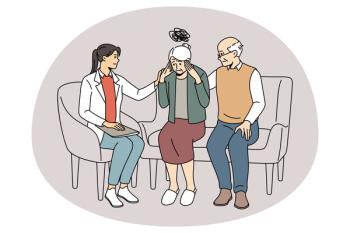
Research reveals that reducing anticholinergic burden can significantly enhance cognitive function in patients with psychosis, offering new treatment insights.

Dr Tampi is professor and chair of the Department of Psychiatry at Creighton University School of Medicine and Catholic Health Initiatives Health Behavioral Health Services. He is also an adjunct professor of psychiatry at Yale School of Medicine in New Haven, Connecticut, and a member of the Psychiatric Times editorial board.

Research reveals that reducing anticholinergic burden can significantly enhance cognitive function in patients with psychosis, offering new treatment insights.

Explore how placebo effects vary across psychiatric disorders, revealing significant symptom improvements, especially in major depressive disorder and generalized anxiety disorder.

Explore the complexities of insomnia in older adults, its impact on health, and effective management strategies for improved sleep quality.

Discover the most effective components of cognitive behavioral therapy for chronic insomnia, enhancing treatment outcomes and patient care strategies.

Review the September Special Report with articles on geriatric psychiatry, from a variety of experts.

Geriatric psychiatry faces a critical shortage of specialists, impacting the mental health care of the rapidly growing older adult population.

Combining cognitive behavioral therapy with medication enhances ADHD treatment in adults, showing significant benefits within 3 months.

Antidepressant treatment for late-life depression enhances cognitive functions like memory and learning, linking symptom relief to cognitive improvement.

Social media use among older adults shows potential benefits for reducing loneliness and improving psychosocial well-being, though results vary across studies.

In this CME article, learn more about the complexities of neuropsychiatric symptoms in Parkinson disease, including psychosis and cognitive impairment, and effective treatment strategies.

Research reveals that IV haloperidol and ziprasidone are safe for treating delirium in patients that are critically ill, showing minimal impact on QTc intervals.

In this CME article, explore the complexities of Parkinson disease, focusing on neuropsychiatric symptoms, their prevalence, and effective treatment strategies for improved patient care.

New research reveals that discontinuing long-term benzodiazepine therapy may increase risks of mortality and other adverse outcomes, challenging common assumptions.

Ketamine or ECT? A new study reveals which works best for severe depression—depending on the patient and setting.

Recent research demonstrated that xanomeline-trospium is more efficacious than placebo in treating positive and negative psychotic symptoms in adults with schizophrenia.

Clinicians should consider rTMS as an intervention to alleviate OCD symptoms, especially in those who have failed other treatments or those with comorbid depression.

Patients with personality disorders would benefit from therapy regardless of modality, duration, or intensity.

A systematic review and meta-analysis showed moderate-quality evidence supporting lithium’s ability to lower mortality rates.

A new study shows that rTMS has moderate therapeutic effects on OCD severity.

In this CME article, learn more about the efficacy and tolerability of brexpiprazole for the treatment of agitation among individuals with Alzheimer disease dementia.

Evidence indicates that children and adolescents with ADHD have a more than 4-fold increased risk of schizophrenia spectrum and other psychotic disorders in adulthood compared with the general population.


The behavioral and psychological symptoms of dementia contribute significantly to the greater rates morbidity and mortality among those with dementia.

This randomized, placebo-controlled, phase 3 clinical trial showed that a 14-day treatment course of oral zuranolone 50 mg/day in MDD led to significantly greater improvements in depressive symptoms when compared with placebo.

A study assessed the associations between the use of ADHD medications and CVD over the course of 14 years. Here's what the investigators found.

An expert gives us a preview of the clinical pearls clinicians can expect from his presentations at this year’s APA Annual Meeting.

In this CME article, discuss and describe the epidemiology, assessment, and evidence-based treatment of insomnia in older adults.

Recent research investigated the benefits and risks of augmentation compared with switching strategies for TRD in older adults.

Join us in congratulating Dr Tampi on his recent win of the American Association for Geriatric Psychiatry’s Diversity Award!

Two phase 3 trials were conducted to assess the clinical and biological effects as well as the safety of gantenerumab in individuals with mild cognitive impairment or mild dementia due to AD. Here's what you need to know.

Published: January 16th 2024 | Updated:

Published: April 17th 2024 | Updated:

Published: April 16th 2025 | Updated:

Published: October 16th 2020 | Updated:

Published: July 14th 2021 | Updated:

Published: May 25th 2024 | Updated: